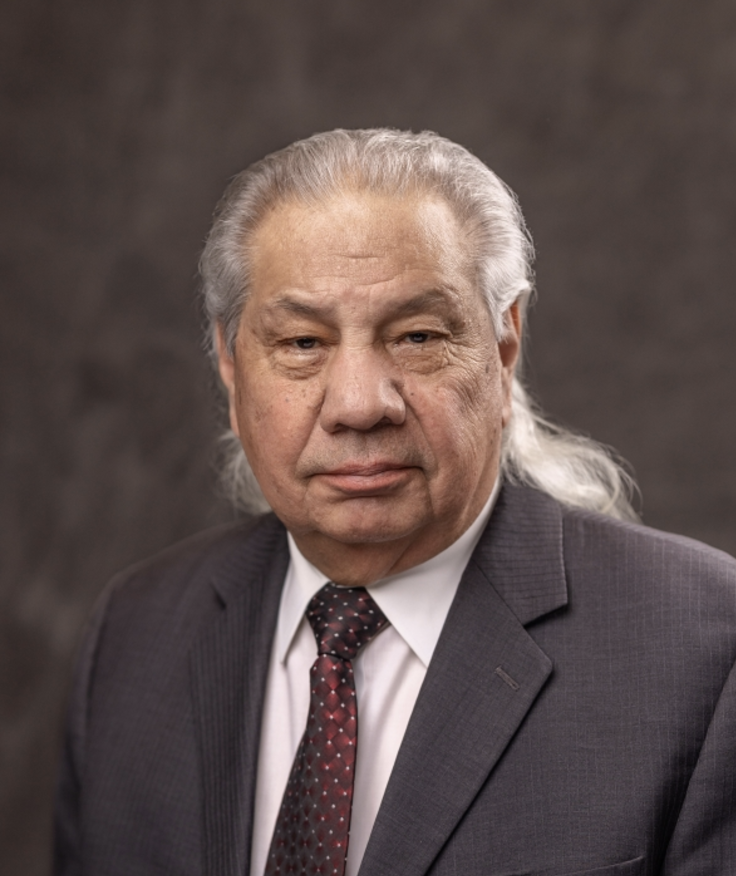This January, Native communities are recognizing the 50th Anniversary of the Indian Self Determination and Education Act that was signed into law by President Gerald R. Ford on January 4, 1975.

John EchoHawk (Pawnee), founder and executive director of the Native American Rights Fund (NARF), sat down with editor and publisher Levi Rickert on an episode of Native Bidaské to discuss the Act’s significance in affirming tribal sovereignty.
Editor’s Note: This transcript has been edited for brevity and clarity.
In your opinion, are we celebrating the Indian Self Determination and Education Act, or is it just an observance?
I think it's a celebration because it was a huge step forward in terms of recognition of tribal sovereignty, which, of course, had been an issue in this country for many years.
What did the Act do?
It basically allowed tribes to administer federal programs that had previously been administered by federal employees on reservations. It allowed tribes to administer those programs themselves, in recognition of their status as sovereign governments able to govern things on the reservation.
What role did Nixon play in the passage of the Act?
He was the one in 1970 who first set the National Native American policy for the federal government for self-determination and recognition of tribal sovereignty, changing that from the previous federal policy of terminating tribes, eliminating tribes, ignoring treaties, and the right to self-determination of tribes. President Nixon changed all that beginning in 1970 and it set all of these very positive developments for tribes in motion, and of course, culminated there in early 75 in the approval of the Indian Self Determination Act.
He was someone who knew something about us because of his upbringing there in Southern California and getting educated by a Native coach that he had down there when he was playing football. He also benefited from having some real good advocates in Washington, DC, start to push for recognition of tribal self-determination and tribal sovereignty. That was really led by LaDonna Harris, the wife of a senator then, Fred Harris, and had really organized a campaign to lobby the White House to have this federal policy changed.
Is Indian Country better because of the Act?
I think so because it's really allowed tribal governments to develop their institutions as they're able to administer these programs in a way that benefits their citizens in the best ways.
Tribal governments have really grown, and the tribal sovereignty movement, much of that is due to the fact that they were able to start administering these programs because of self determination.
The Bureau of Indian Affairs and the federal government ran virtually everything on the reservation because they were the ones who had the money to carry out the programs. The tribes really weren't part of that process, and with the Self-determination Act, they basically took over that process and started administering all of those programs on the reservations.
More Stories Like This
NCAI Passes Two Emergency Resolutions on Immigration Enforcement ActivitiesChickasaw Lighthorse Police Officer named Indian Country Law Enforcement Officer of the Year
Indian Gaming Association Rallies Broad Coalition Against Sports Event Contracts It Calls Illegal Threat to Tribal Sovereignty
Navajo Resources and Development Committee Issues Notice on Livestock Inspection Requirements
American Prairie, Tribal Coalition Files Protest Over Rescinded Grazing Rights
Help us defend tribal sovereignty.
At Native News Online, our mission is rooted in telling the stories that strengthen sovereignty and uplift Indigenous voices — not just at year’s end, but every single day.
Because of your generosity last year, we were able to keep our reporters on the ground in tribal communities, at national gatherings and in the halls of Congress — covering the issues that matter most to Indian Country: sovereignty, culture, education, health and economic opportunity.
That support sustained us through a tough year in 2025. Now, as we look to the year ahead, we need your help right now to ensure warrior journalism remains strong — reporting that defends tribal sovereignty, amplifies Native truth, and holds power accountable.
 The stakes couldn't be higher. Your support keeps Native voices heard, Native stories told and Native sovereignty defended.
The stakes couldn't be higher. Your support keeps Native voices heard, Native stories told and Native sovereignty defended.
Stand with Warrior Journalism today.
Levi Rickert (Potawatomi), Editor & Publisher


